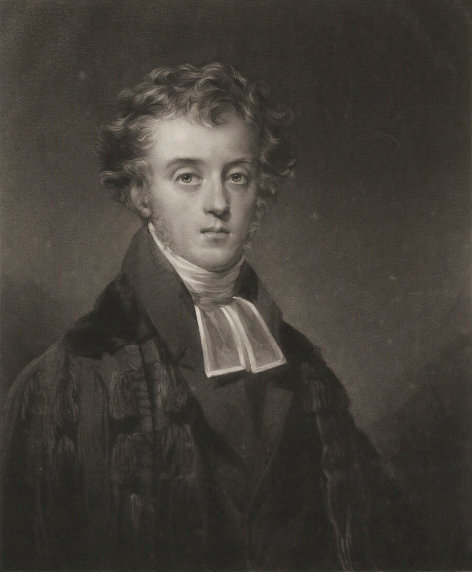|
Nontheism
Nontheism or non-theism is a range of both religious and non-religious attitudes characterized by the absence of espoused belief in the existence of God or gods. Nontheism has generally been used to describe apathy or silence towards the subject of gods and differs from atheism, or active disbelief in any gods. It has been used as an umbrella term for summarizing various distinct and even mutually exclusive positions, such as agnosticism, ignosticism, ietsism, skepticism, pantheism, pandeism, transtheism, atheism ( strong or positive, implicit or explicit), and apatheism. It is in use in the fields of Christian apologetics and general liberal theology. An early usage of the hyphenated term ''non-theism'' is attributed to George Holyoake in 1852. Within the scope of nontheistic agnosticism, philosopher Anthony Kenny distinguishes between agnostics who find the claim "God exists" uncertain and theological noncognitivists who consider all discussion of God to be meaning ... [...More Info...] [...Related Items...] OR: [Wikipedia] [Google] [Baidu] |
Nontheistic Religion
Nontheistic religions (not to be confused with atheism) are traditions of religious belief, thought within a religious context—some otherwise aligned with theism, others not—in which nontheism informs religious beliefs or practices. Nontheism has been applied and plays significant roles in Hinduism, Buddhism, and Jainism. While many approaches to religion exclude nontheism by definition, some inclusive definitions of religion show how religious practice and belief do not depend on the presence of a god or gods. For example, Paul James (academic), Paul James and Peter Mandaville distinguish between religion and spirituality, but provide a definition of the term that avoids the usual reduction to "religions of the book": Buddhism Existence of gods The Gautama Buddha, Buddha said that ''Deva (Buddhism), devas'' (translated as "gods") do exist, but they were regarded as still being trapped in ''Samsara (Buddhism), samsara'', and are not necessarily wiser than humans. ... [...More Info...] [...Related Items...] OR: [Wikipedia] [Google] [Baidu] |
Irreligion
Irreligion is the absence or rejection of religious beliefs or practices. It encompasses a wide range of viewpoints drawn from various philosophical and intellectual perspectives, including atheism, agnosticism, religious skepticism, rationalism, secularism, and non-religious spirituality. These perspectives can vary, with individuals who identify as irreligious holding diverse beliefs about religion and its role in their lives. Relatively little scholarly research was published on irreligion until around the year 2010. Overview Over the past several decades, the number of secular persons has increased, with a rapid rise in the early 21st century, in many countries. In virtually every high-income country and many poor countries, religion has declined. Highly secular societies tend to be societally healthy and successful. Social scientists have predicted declines in religious beliefs and their replacement with more scientific/naturalistic outlooks (secularizati ... [...More Info...] [...Related Items...] OR: [Wikipedia] [Google] [Baidu] |
Atheism
Atheism, in the broadest sense, is an absence of belief in the Existence of God, existence of Deity, deities. Less broadly, atheism is a rejection of the belief that any deities exist. In an even narrower sense, atheism is specifically the position that there no deities. Atheism is contrasted with theism, which is the belief that at least one deity exists. Historically, evidence of atheistic viewpoints can be traced back to classical antiquity and Nāstika, early Indian philosophy. In the Western world, atheism declined after Christianity gained prominence. The 16th century and the Age of Enlightenment marked the resurgence of atheistic thought in Europe. Atheism achieved a significant position worldwide in the 20th century. Estimates of those who have an absence of belief in a god range from 500 million to 1.1 billion people. Atheist organizations have defended the autonomy of science, freedom of thought, secularism, and secular ethics. Arguments for atheism range from p ... [...More Info...] [...Related Items...] OR: [Wikipedia] [Google] [Baidu] |
Antitheism
Antitheism, also spelled anti-theism, is the philosophical position that theism should be opposed. The term has had a range of applications. In secular contexts, it typically refers to direct opposition to the belief in any deity. Etymology The word ''antitheism'' (or hyphenated ''anti-theism'') has been recorded in English since 1788. The etymological roots of the word are the Greek '' anti'' and ''theos.'' The ''Oxford English Dictionary'' defines ''antitheist'' as "One opposed to belief in the existence of a god". The earliest citation given for this meaning dates from 1833. The term was likely coined by Pierre-Joseph Proudhon. Opposition to theism ''Antitheism'' has been adopted as a label by those who regard theism as dangerous, destructive, or encouraging of harmful behavior. Christopher Hitchens (2001) wrote: Opposition to the idea of God Other definitions of antitheism include that of the French Catholic philosopher Jacques Maritain (1953), for whom it is "an ac ... [...More Info...] [...Related Items...] OR: [Wikipedia] [Google] [Baidu] |
Deism
Deism ( or ; derived from the Latin term '' deus'', meaning "god") is the philosophical position and rationalistic theology that generally rejects revelation as a source of divine knowledge and asserts that empirical reason and observation of the natural world are exclusively logical, reliable, and sufficient to determine the existence of a Supreme Being as the creator of the universe. More simply stated, Deism is the belief in the existence of God—often, but not necessarily, an impersonal and incomprehensible God who does not intervene in the universe after creating it, solely based on rational thought without any reliance on revealed religions or religious authority. Deism emphasizes the concept of natural theology—that is, God's existence is revealed through nature. Since the 17th century and during the Age of Enlightenment, especially in 18th-century England, France, and North America, various Western philosophers and theologians formulated a critical reject ... [...More Info...] [...Related Items...] OR: [Wikipedia] [Google] [Baidu] |
Naturalism (philosophy)
In philosophy, naturalism is the idea that only Scientific law, natural laws and forces (as opposed to supernatural ones) operate in the universe. In its primary sense, it is also known as ontological naturalism, metaphysical naturalism, pure naturalism, philosophical naturalism and antisupernaturalism. "Ontological" refers to ontology, the philosophical study of what exists. Philosophers often treat naturalism as equivalent to materialism, but there are important distinctions between the philosophies. For example, philosopher Paul Kurtz argued that nature is best accounted for by reference to Matter, material principles. These principles include mass, energy, and other Physical property, physical and Chemical property, chemical properties accepted by the scientific community. Further, this sense of naturalism holds that spirits, Deity, deities, and ghosts are not real and that there is no "Teleology, purpose" in nature. This stronger formulation of naturalism is commonly ref ... [...More Info...] [...Related Items...] OR: [Wikipedia] [Google] [Baidu] |
Deus Absconditus
''Deus absconditus'' (Latin: "hidden God") refers to the Christian theological concept of the fundamental unknowability of the essence of God. The term is derived from the Old Testament of the Christian Bible, specifically from the Book of Isaiah: "Truly, you are a God who hides himself, O God of Israel, the Savior" (). Quotes from the English and Greek Bible referring to the hidden God are listed in "Deus Absconditus - The Hidden God" by M.M Nikoletseas pp 21-27 This concept was particularly important for the theological thought of the medieval Christian theologians Thomas Aquinas, Nicholas of Cusa,, John Scotus Eriugena and Martin Luther. "The precise manner in which God is not visible by man is not always clear, often because of imprecision in translation. For example in the English translation God hides himself, while in the Greek translation man cannot see God. In the case in which man cannot see God we may not necessarily conclude that God is hiding; there may be other re ... [...More Info...] [...Related Items...] OR: [Wikipedia] [Google] [Baidu] |
Harvey Cox
Harvey Gallagher Cox Jr. (born May 19, 1929) is an American theologian who served as the Hollis Professor of Divinity at Harvard Divinity School, until his retirement in October 2009. Cox's research and teaching focus on theological developments in world Christianity, including liberation theology and the role of Christianity in Latin America. Early life and education Cox was born on May 19, 1929, in Phoenixville, Pennsylvania, to Dorothea Cox and Harvey Gallagher. He was raised in Malvern, Pennsylvania. After a stint in the US Merchant Marine, Cox attended the University of Pennsylvania and graduated in 1951 with a Bachelor of Arts degree with honors in history. He earned a Bachelor of Divinity degree from Yale Divinity School in 1955, and a Doctor of Philosophy degree in the history and philosophy of religion from Harvard University in 1963. Career Cox was ordained as an American Baptist minister in 1957, and started teaching as an assistant professor at the Andover Ne ... [...More Info...] [...Related Items...] OR: [Wikipedia] [Google] [Baidu] |
James Buchanan (minister)
James Buchanan (1804–1870) was a preacher and theological writer. He was born in 1804 at Paisley, Renfrewshire, Paisley, and studied at the University of Glasgow. In 1827 he was ordained Church of Scotland minister of Roslin, near Edinburgh, and in 1828 he was translated to charge of North Leith Parish Church, North Leith. In 1840 Buchanan was translated to the High Church (St Giles Cathedral, St. Giles’), Edinburgh, and in 1843, after Disruption of 1843, the Disruption, he became first minister of St. Stephen's Free Church. In 1845 he was appointed professor of apologetics in the New College, Edinburgh, New College (Free church), Edinburgh, and in 1847, on the death of Dr. Thomas Chalmers, he was transferred to the chair of systematic theology, continuing there till his resignation in 1868. Life James Buchanan was born in Paisley, Renfrewshire, Paisley on 14 April 1804 as the eldest son of James Buchanan, a wine merchant. He was educated at Paisley Grammar School. After ... [...More Info...] [...Related Items...] OR: [Wikipedia] [Google] [Baidu] |
Oxford English Dictionary
The ''Oxford English Dictionary'' (''OED'') is the principal historical dictionary of the English language, published by Oxford University Press (OUP), a University of Oxford publishing house. The dictionary, which published its first edition in 1884, traces the historical development of the English language, providing a comprehensive resource to scholars and academic researchers, and provides ongoing descriptions of English language usage in its variations around the world. In 1857, work first began on the dictionary, though the first edition was not published until 1884. It began to be published in unbound Serial (literature), fascicles as work continued on the project, under the name of ''A New English Dictionary on Historical Principles; Founded Mainly on the Materials Collected by The Philological Society''. In 1895, the title ''The Oxford English Dictionary'' was first used unofficially on the covers of the series, and in 1928 the full dictionary was republished in 10 b ... [...More Info...] [...Related Items...] OR: [Wikipedia] [Google] [Baidu] |
Conceptions Of God
Conceptions of God in classical theist, monotheist, pantheist, and panentheist traditions – or of the supreme deity in henotheistic religions – can extend to various levels of abstraction: * as a powerful, personal, supernatural being, or as the deification of an esoteric, mystical or philosophical entity or category; * as the " Ultimate", the ''summum bonum'', the "Absolute Infinite", the " Transcendent", or Existence or Being itself; * as the ground of being, the monistic substrate, that which we cannot understand; and so on. The first recordings that survive of monotheistic conceptions of God, borne out of henotheism and (mostly in Eastern religions) monism, are from the Hellenistic period. Of the many objects and entities that religions and other belief systems across the ages have labeled as divine, the one criterion they share is their acknowledgment as divine by a group or groups of human beings. Hellenistic philosophy and religion Aristoteli ... [...More Info...] [...Related Items...] OR: [Wikipedia] [Google] [Baidu] |





